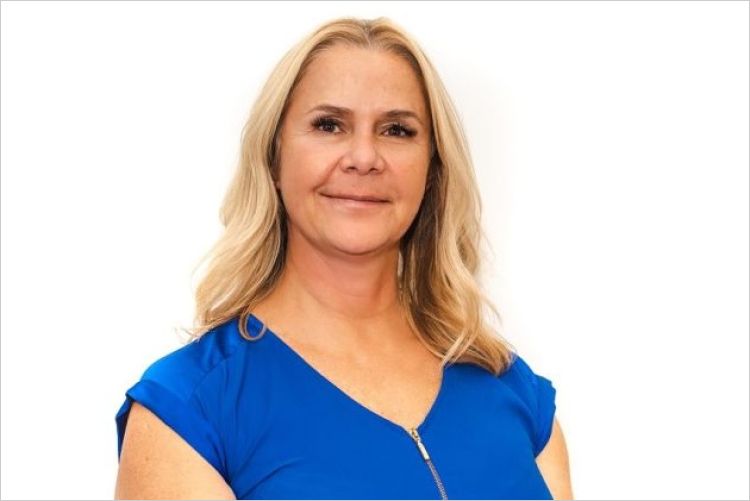
Marie-Christine (MC) Bouchard joined Pembina Institute as the new Director of Oil and Gas on January 29. She is working out of our Calgary office and will engage with stakeholders across the country. Bouchard has over 20 years of experience in the energy sector, summarized in her online bio.
MC worked across Canada while at Imperial. As remediation and reclamation project manager and then a team lead, she oversaw work in Ontario and the Prairies. She also took on the roles of engineering and maintenance manager and, finally, operations manager for western Canada. She had responsibility for marine, aviation, land terminals and pipelines from Winnipeg to Nanaimo on Vancouver Island, as well as in the North — all the way up to Norman Wells in the Northwest Territories. She understands how oil and gas products are distributed and used across the country and appreciates the opportunities and barriers to improving energy systems and making clean energy accessible to everyone.
At the Pembina Institute, MC welcomes the chance to continue to offer policy solutions for the oil and gas industry, one of the most difficult sectors in which to abate emissions. She takes responsibility for ensuring the team advocates for and influences the adoption of policies and regulations that are credible, executable and consider environmental, social and economic risks and opportunities.
The following is the edited transcript of a conversation with MC held in mid-January.
Laurence: You've done a lot in your career, so there are probably many accomplishments that you can point to that you're proud of, but I wonder if you could tell me about one thing of which you are particularly proud?
MC: If there is one thing I'm most proud of, it’s having had the opportunity to contribute to other people’s career development. In both the oil and gas industry, and more recently with the Government of Alberta, I had the opportunity to make a difference. I was in an environment where it was very male dominated and, being a female in a leadership role model, I was able to influence others to continue following the path they wanted to follow.
Laurence: Have you found it particularly challenging working in a male-dominated industry?
MC: It was challenging, although it wasn't the most challenging aspect of my career. I think that’s because I had been in the military, where it was also a male-dominated environment. I didn't realize how hard or how different it was for many of the females to be in a male-dominated environment… I was recently working with an individual that had been told in the past they were ready to be a supervisor, but they themselves didn't feel quite ready and they shared that with me. Shortly thereafter, an opportunity came up for them to be acting supervisor. I said to her, “I'll be here to support you. You know — try it.” She ended up being a great supervisor. Being there and being able to coach them and guide them on their way to bigger and better things, which is something they wanted to do — it’s terrific.
Laurence: Can you tell me about a mentor or a supervisor or a coworker who has changed your perspective on an issue or something else in your career?
MC: I've never had a lot of formal mentors. There was someone in the finance side of things at Imperial and I heard her speak a few times, either at leadership events or business update events. Something she said really stuck with me. She said that she had decided in her own life, in her own career, to be a net giver. That's what fulfilled her and made her happy: to give more than to receive in her professional life and in her personal life. That was one of the most impactful things that happened quite early in my career. That shaped how I try to work.
Laurence: Do you think that there are any misconceptions about the oil and gas industry that need to be addressed?
MC: I think there's probably a lack of understanding about all the different products and services that the oil and gas industry provides us. Of course, there’s energy, and electricity, especially in Alberta. There’s also chemicals, textiles and medical devices, jet fuel lubes, waxes, asphalt. There is so much that the oil and gas industry produces that is essential to our lives. That’s something that really needs to be understood and taken into consideration as we move into the global clean energy transition.
Laurence: What kind of role do you think the industry can or should play in in addressing climate change in a decarbonizing world?
MC: I would say the industry needs to play a leadership role. We need to be able to provide the products and services that we rely on today but with lower emissions. I think the oil and gas industry needs to align with what the public and the policy-makers want in the long term in response to the realities of climate change.
Laurence: What are you most looking forward to in your in your new role at the Pembina Institute?
MC: Meeting the people that work here. I'm going to be meeting a whole bunch of people that are thoughtful and motivated and interested and invested. That’s kind of a unique opportunity, and I'm looking forward to it.
Laurence Miall is communications manager for the Pembina Institute's communities and decarbonization work; he is based in Edmonton.



